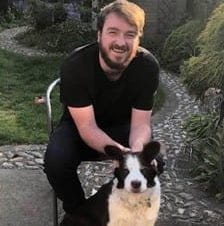In this blog, automotive engineering student and course representative James Allan, reflects on a recent module, and how it has further enhanced his knowledge and skills as a ‘graduate of the future’.
I have been actively engaged in the Energy Systems modules for 12 weeks and I can honestly say it has been a very interesting subject. With regard to the modern world, there are a vast array of everyday items that rely on productive and efficient energy systems. This module has primarily focused on the transportation sector, whilst also covering fluid dynamics, thermal storage systems, heat exchangers and refrigeration systems.
User of Digital Tools
Our tutors have certainly been insightful with their current knowledge and previous experience in the engineering industry. I particularly recall a tutorial lecture held with Rob where he showed us a liquid-air calculator he designed in a previous line of work. This calculator, was used to build a large industrial turbine for a company using primarily first year calculations and it was all completed on excel as a .xlsx file.
It’s hard to describe but having that first demonstration of how engineering principles can be applied in real life situations, really opened my eyes to the world of possibilities that lies ahead in my future.
Up until this course, I always viewed excel as one of those things you had to do to pass I.T lessons in school, however after seeing this demonstration and being shown how to code on both excel and MATLAB to create our own piston modelling simulator software and plot data groups, it is clear to see there are lots of incredibly useful tools with vast potential.
Critical Thinker and Global Citizen
Transportation is a very important theme that is both integral to my studies as an automotive engineering student and to the future of global climate change. I feel this was covered in a very non-biased, informative, and interesting way.
We were introduced primarily to four main types of powertrains which were petrol engines, diesel engines, turbo fan jets and electric motors. We looked into the pressure and gas laws behind these forms of propulsion and in particular the pros and cons of each system. This approach gave me greater clarity into the decision-making process when comparing various systems in terms of power generation and efficiencies.
The future of the world depends on mindful thought processes when it comes to designing and building the least polluting propulsion systems and therefore, I believe this course has directed me into having this nonbiased view and allowed me to follow the science and calculations to get the best result for the products I will potentially be creating.
There was also a great hands-on approach within the module. We were given 4 labs to complete which included an engine dyno testing room, a driving and flight simulator suite and a wind tunnel testing room. This was particularly interesting as it gave a good insight into the future of both the course, and the tools I would use in the workplace.
The data collected from these lab sessions were applied to some MCQ’s and it was fascinating to see real world data be applied to calculations to estimate a real-life result of a product.
Resilient Self-Advocate
We were very fortunate to have such dedicated tutors who guided us through all the exam processes with clear and precise instructions.
Angad held a Q&A at the beginning of the course which I feel was particularly helpful and gave everybody a chance to ask any questions about the course and to voice their worries about the examinations in a very safe space. This appeared to make everyone feel very comfortable approaching the exams and, in particular, having a weeklong open book examination really prepared us for the 1.5 hour closed book exam that occurred a few weeks afterwards.
As student representative for automotive engineering (year 1), I did not hear one negative comment about these examinations from any students as it was made very clear from the beginning what would occur and any questions or queries, in my experience, were resolved within a maximum of three days.
All in all, this module has certainly made me more comfortable as I approach a future in the engineering sector. After seeing many real-world examples of engineering studies in practise, and being supported exceedingly well along the way, I feel extremely positive about the next few years of my university studies to come.

Published by